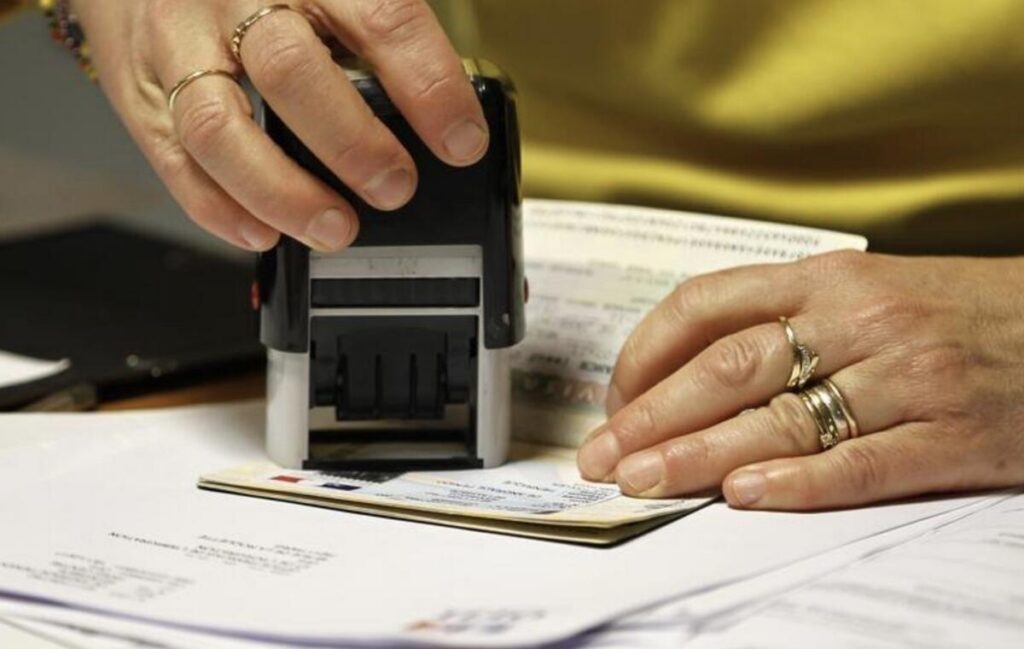
Work Visas In the intricate tapestry of the United Arab Emirates (UAE) labor market, a nuanced narrative is unfolding as certain companies grapple with hurdles in procuring work visas for potential employees hailing from specific South Asian nationalities. At the heart of this narrative lies a subtle directive from authorities, urging businesses—especially those with a discernible concentration of employees from a particular nationality—to prioritize “demographic diversity while hiring.”
Debunking Assertions
Contrary to the viral claims echoing across social media platforms, asserting a blanket cessation of visa issuances to individuals from India, Pakistan, and Bangladesh, the realm of visa experts and agents resolutely refutes such categorical assertions. Unpacking the complexities, it becomes evident that the situation is more nuanced than a sweeping visa ban.
Guidance from the Ministry: Work Visas
In an effort to shed light on this intricate landscape, businesses reaching out to the Ministry of Human Resources and Emiratisation (MoHRE) have been provided with nuanced guidance. Establishments are being advised to infuse diversity into their hiring practices by allocating the “first 20 per cent of available quotas” to individuals from various nationalities. Crucially, this guidance is framed within the broader context of fostering demographic diversity without singling out any specific nationality.
Responding to the Diversity Imperative
In the wake of this directive, companies encountering the “achieve demographic diversity” message are encouraged to explore avenues of hiring individuals from different nationalities. This strategic approach aligns with the overarching goal of cultivating a diverse and inclusive work environment.
Clarification from MoHRE
In the pursuit of clarity, Khaleej Times engaged with MoHRE, elucidating that the imperative to diversify the first 20% of the workforce transcends nationality specifics. Once this initial threshold is met, businesses are accorded the freedom to hire individuals from any nationality, fostering a more inclusive hiring landscape.
Real-World Experiences
The intricate nature of these developments is best captured in real-world experiences. Firosekhan, Managing Director of Dubai-based Profound Business Service, shared a nuanced narrative. Successfully procuring a visa for an Indian applicant in a company with a diversified workforce stands in stark contrast to the “achieve diversity” message encountered when attempting the same for an applicant in a company predominantly comprising Indian employees.
Insights from Executives
Executives in the business realm are shedding light on the deeper motivations behind these initiatives. Abdul Gafoor, General Manager of Al Mas Businessmen Service, elucidates that the UAE’s focus is on injecting diversity into the workplace. In companies where Indians, Pakistanis, and Bangladeshis constitute a significant majority, there exists a temporary restriction on applying for new visas for individuals from the same countries, underscoring the UAE’s commitment to fostering diversity.
Zone-Specific Dynamics
Intriguingly, as of the latest information, this diversity directive does not extend its influence into free zones. Companies operating within these zones seem to navigate the visa landscape without encountering impediments related to work permit issuance based on demographic diversity.
Policy Framework and Diversity Objectives
As a backdrop to these recent developments, it’s crucial to recall the introduction of a three-tier classification system by MoHRE in 2022. Within this framework, achieving diversity in hiring emerges as a pivotal criterion for companies aspiring to attain a higher classification. This elevated status not only enhances the organizational standing but also unlocks tangible benefits such as discounts on work permits and transfer fees.
Vision of Diversity
According to MoHRE, the overarching goal of the diversity policy is to weave the social and cultural diversity of the UAE into the fabric of private sector companies. This ambitious objective translates into diversifying the cultural backgrounds of employees, offering equal employment opportunities, and empowering UAE citizens in accordance with Emiratisation percentages.
Conclusion
In navigating these intricacies, the evolving narrative underscores the UAE’s commitment to fostering a workplace environment that is not just productive but reflective of the rich mosaic that constitutes the nation. As companies navigate the nuances of visa applications and workforce diversity, the overarching vision seems to be one of inclusivity, equality, and a harmonious blending of diverse nationalities within the fabric of the UAE’s labor landscape.
Also Read
Numerous Flights Canceled: Travel Plans of UAE Residents Disrupted in India.






